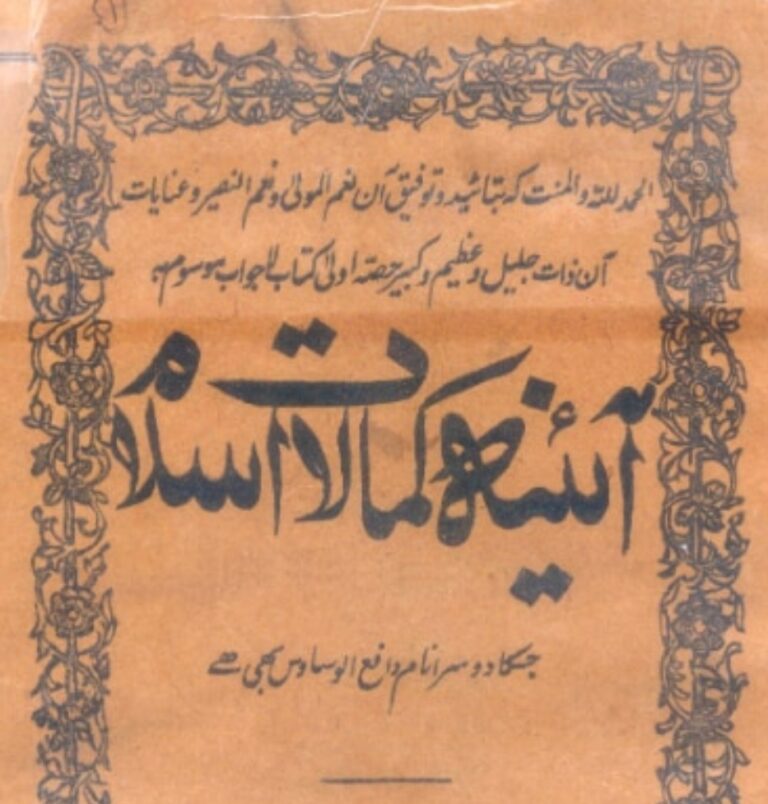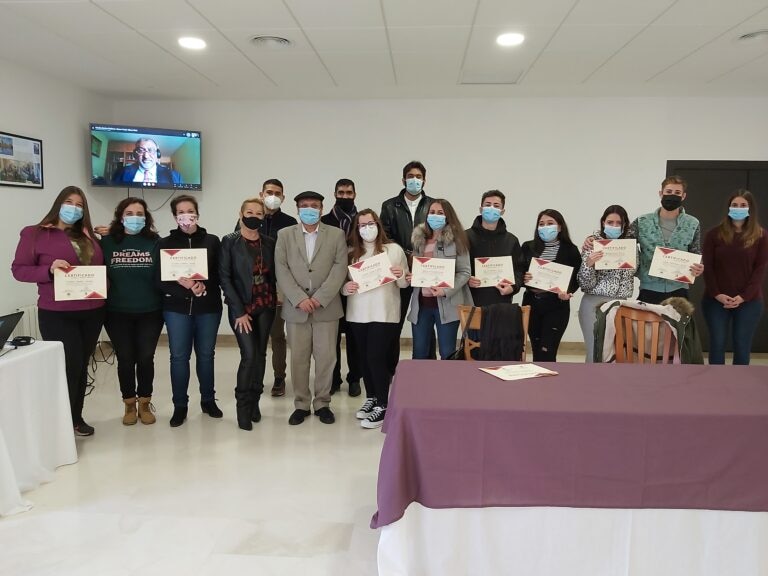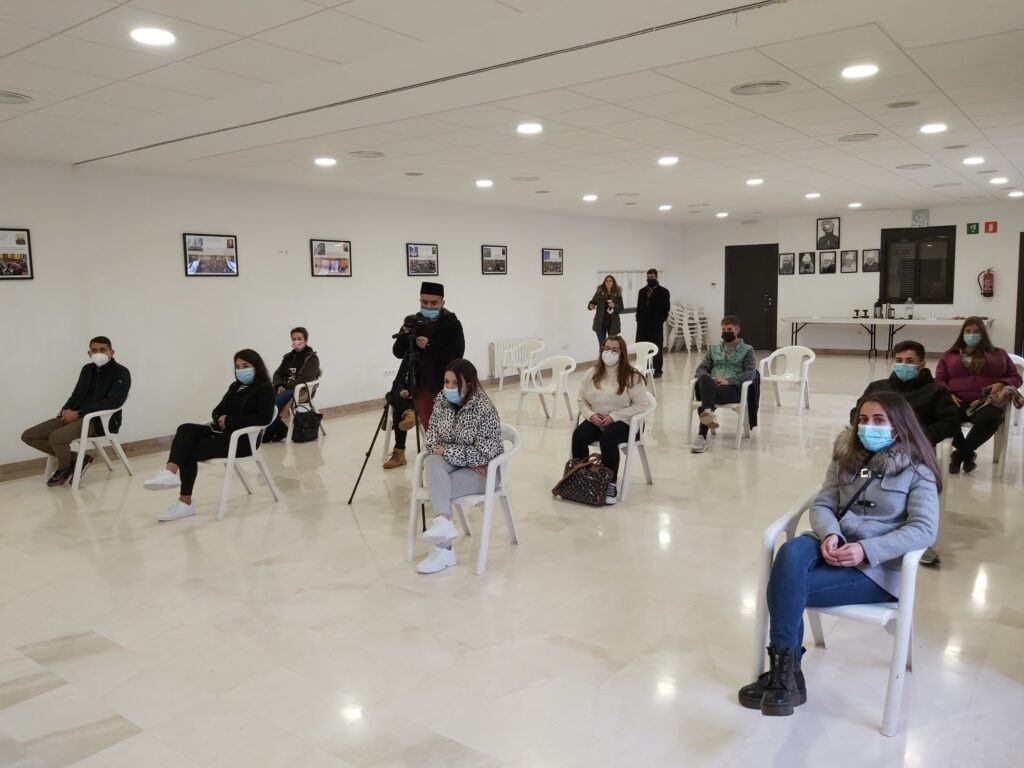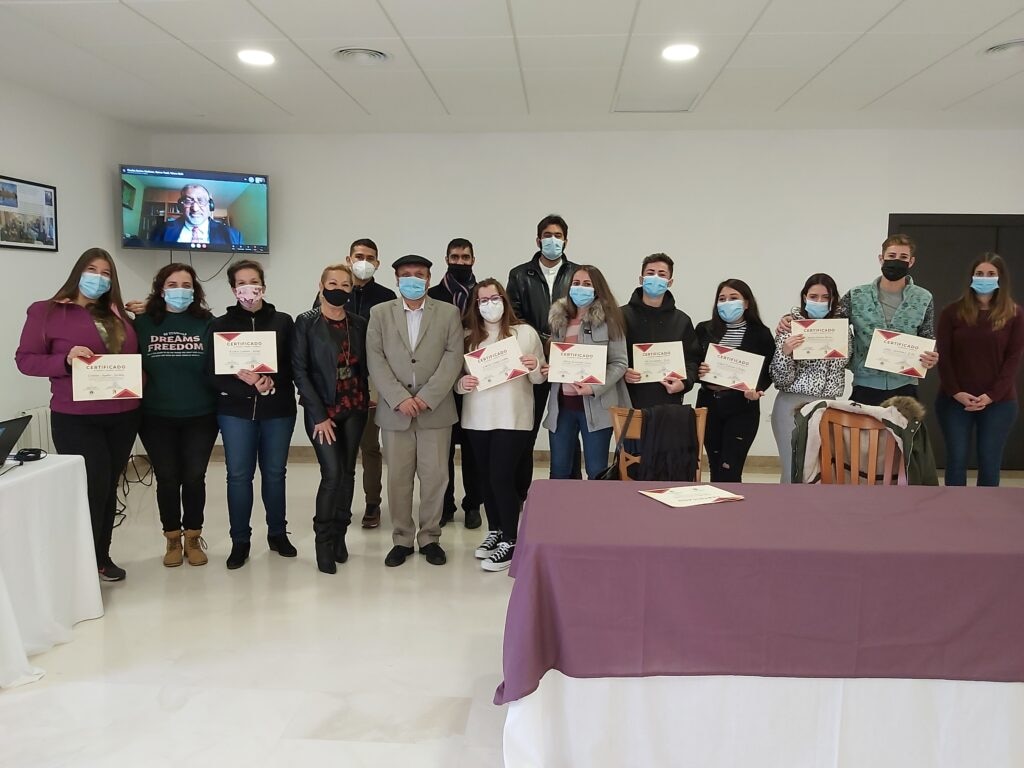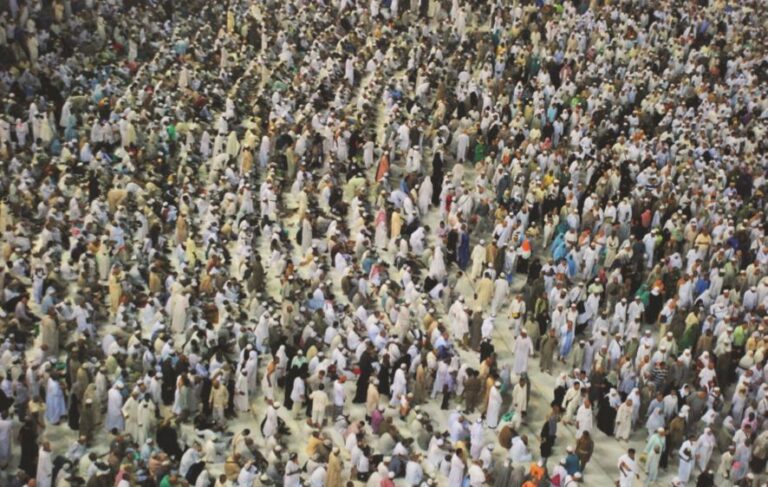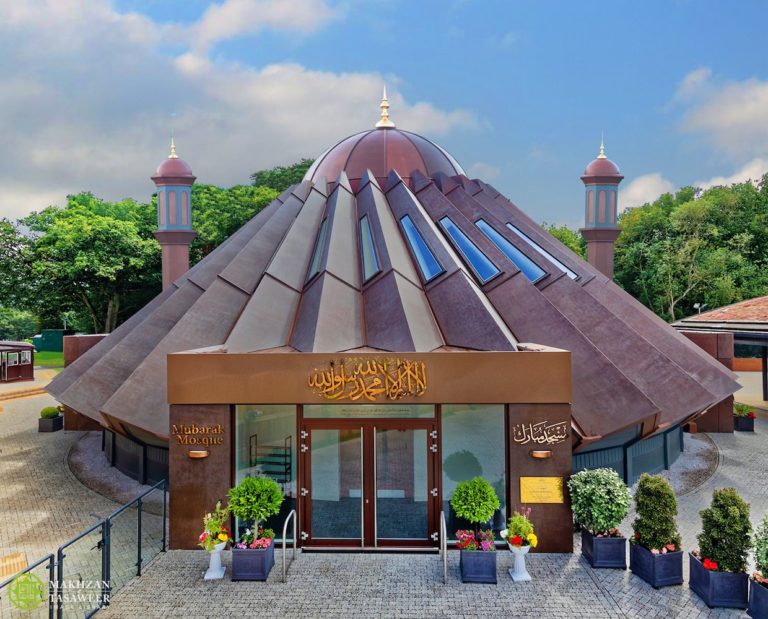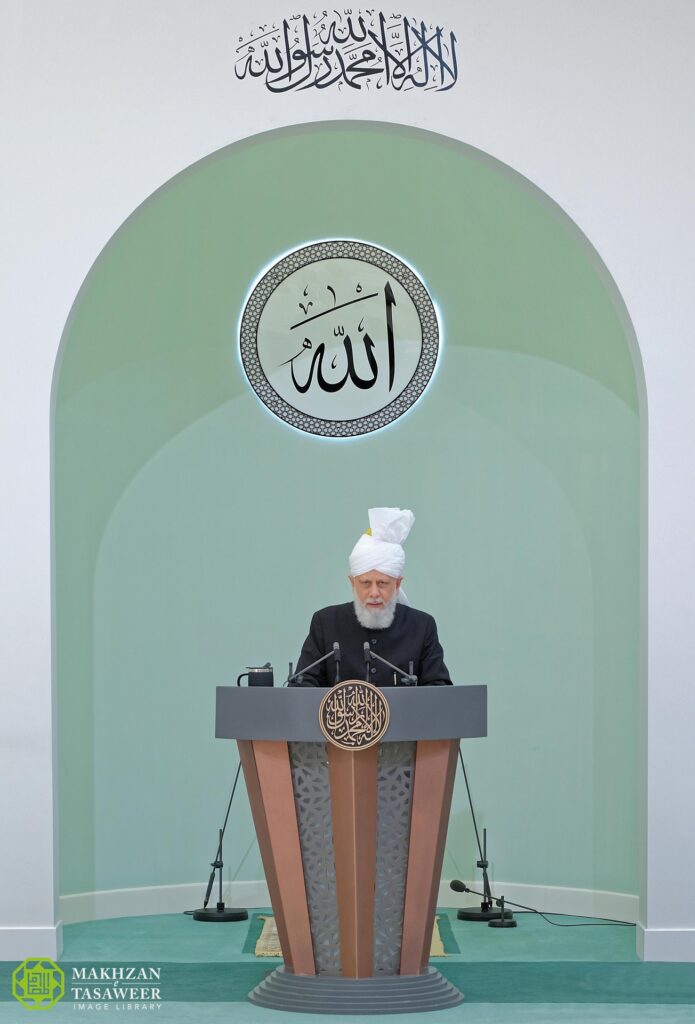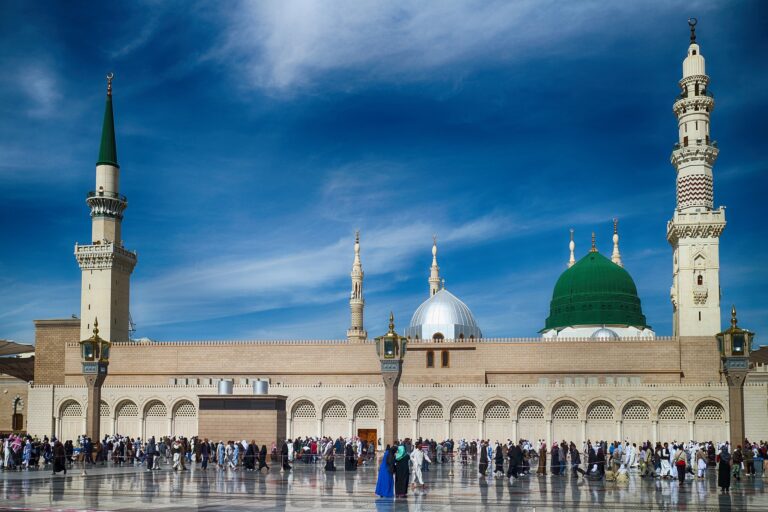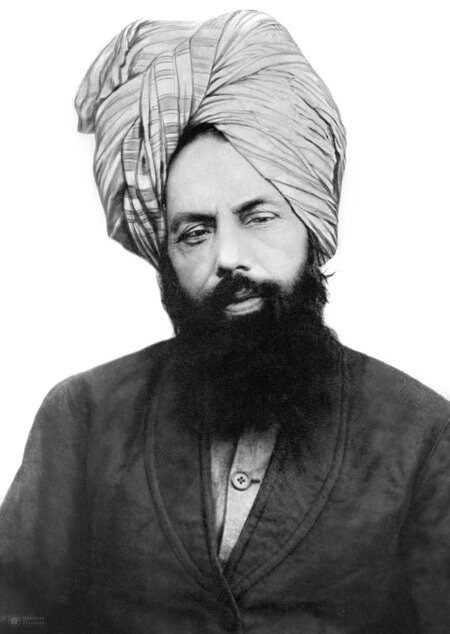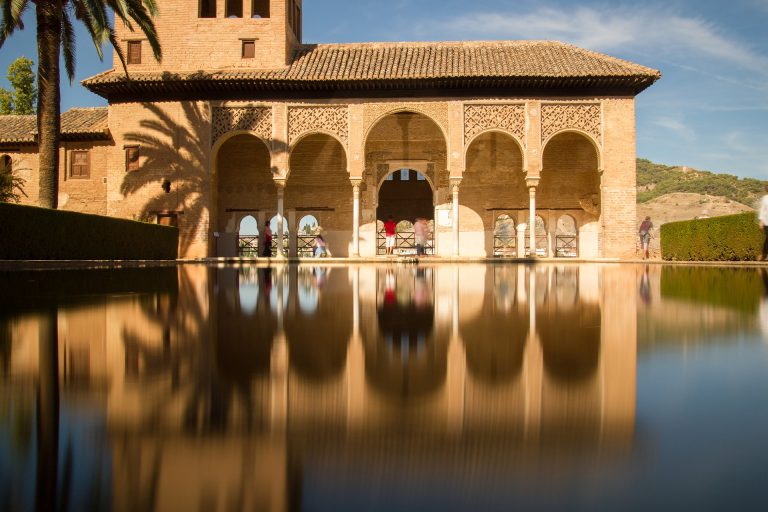Friday Sermon
1 January 2021
Martyrdom of Hazrat Alira and important message to the world for 2021
After reciting Tashahud, Ta‘awuz and Surah al-Fatihah, Hazrat Khalifatul Masih Vaa stated:
I will continue narrating the accounts from the life of Hazrat Alira. With regard to the background of Hazrat Ali’sra martyrdom, Hazrat Musleh-e-Maudra states:
“The matters had not yet completely settled when a party of the Khawarij suggested to put an end to this disorder by killing all the prominent figures. Hence, some of their bold and brave men set out with the firm intention that one of them would kill Hazrat Alira, while the other two would kill Hazrat Mu‘awiyahra and Amrra bin Aas, all in the same day and at the same time.
“The individual who set off towards Hazrat Mu‘awiyahra managed to attack him, but since he did not land a clean strike with his sword, Hazrat Mu‘awiyahra sustained only a minor injury. This individual was caught and was subsequently killed. The individual who set off to kill Amrra bin Aas also failed in his attempt. This is because Hazrat Amrra bin Aas could not go to the mosque to lead the prayer owing to an illness. Instead, the person who came to lead the prayer on behalf of Hazrat Amrra bin Aas was killed. This person was also caught and subsequently executed.
“The individual who set off to kill Hazrat Alira attacked him when he was about to stand up to lead the morning prayer and as a result, Hazrat Alira was severely wounded. At the time of the attack, this individual uttered the following words: ‘O Ali! It is not your right that each and every word of yours be obeyed. This is the sole right of Allah!’” (Anwar-e-Khilafat, Anwar-ul-Ulum, Vol. 3, p. 202)
The Holy Prophetsa had foretold the martyrdom of Hazrat Alira. Hazrat Ubaidullahra has narrated that the Holy Prophetsa said to Hazrat Alira, “O Ali! Are you aware of the most unfortunate individual from among those who came before us and also from among those who will come after?” Hazrat Alira replied, “Allah and His Messengersa know best.” Upon this, the Holy Prophetsa said, “The most wretched person from among those before us was the individual who hamstrung the she-camel of Hazrat Salihra. And O Ali! The most unfortunate person from among the latter ones will be the one to attack you with a spear.” The Holy Prophetsa then indicated where he would be struck.
The narration of Umm-e-Ja‘far, a maidservant of Hazrat Alira, is as follows:
“I was pouring water over the hands of Hazrat Alira when he lifted his head, held his beard and pulled it up to his nose and addressing the beard, he said, ‘How fortunate you are! You will most certainly be coloured with blood.’ And on a Friday, he was martyred.”
In another instance, the incident of the martyrdom of Hazrat Alira has been recorded in the following manner. Ibn Hanafiyyah relates:
“Hazrat Hasanra, Hazrat Husainra and I were sitting in a Hammam when Ibn Muljam came to us. When he entered, Hazrat Hasanra and Hazrat Husainra expressed their displeasure towards him and said, ‘How dare you approach us here in this manner.’ I advised them to ignore him and not engage with him and said, ‘By God! He is even more dangerous than what he intends to do to you.’”
Following his attack on Hazrat Alira, Ibn Muljam was brought forth as a prisoner. Seeing him, Ibn Hanafiyyah said, “I recognised [his intentions] very well the day he entered our Hammam.” Upon this, Hazrat Alira said, “He is a prisoner and as such, he should be well looked after and treated with respect. If I remain alive, I will either execute him or forgive him. However, if I die, kill him as retribution [for his crime], but do not transgress. Surely, Allah loves not the transgressors.”
Qusm, the freed slave of Hazrat Ibn Abbasra, narrates, “In his will, Hazrat Alira had instructed my eldest son that Ibn Muljam should not be struck in the stomach or the private area with a spear.”
It is said that three people from among the Khawarij had been selected – Abdur Rahman bin Muljam Muradi, who was from the Himyar tribe and was a part of the Murad tribe who were confederates of the Banu Jabala from the Qindah family, along with Burak bin Abdullah Tamimi and Amr bin Bukair Tamimi. The three met in Mecca and made a solemn oath that they would certainly kill Hazrat Alira bin Abi Talib, Hazrat Mu‘awiyyahra bin Abi Sufyan and Hazrat Amrra bin Aas, as has already been mentioned earlier in the quote of Hazrat Musleh-e-Maudra, that there were three assailants and these were their names and their intention was to “save” the people from them.
Abdur Rahman bin Muljam said that he would undertake the task of killing Alira bin Abi Talib. Burak said that he would undertake the task of killing Mu‘awiyyahra, while Amr bin Bukair said that he would grant them freedom from Amrra bin Aas [i.e. he would kill him]. After this, they made a solemn oath and assured one another that they would not back down from killing the person they had each mentioned and they would not return until they had killed them, otherwise they would give their own lives in this endeavour, meaning that they would go and either kill those three people or they would give their lives for this and not return.
They decided amongst themselves to set the 17th night of Ramadan to carry out this task. Then each of the three set out towards the city in which their targeted person lived, meaning the person who they intended to kill. Abdur Rahman bin Muljam went to Kufa and met with his Khariji friends, whom he would go to see or they would come to see him; however, he kept his mission secret from them.
One day, he saw a group of people from the Taimur Ribaab tribe, among whom was a woman named Qatam bint Shijnah bin Adi. During the Battle of Nahrawan, Hazrat Alira had killed her father and brother. Ibn Muljam became fond of that woman and sent her a proposal for marriage. She replied saying that she would not marry him unless he made a promise to her. Ibn Muljam said that he would do whatever she asked. She said the she wanted 3,000 dirhams and for Alira bin Abi Talib to be killed. Upon this, he said, “By God, I have come to this city for the very purpose of killing Ali and so I will certainly grant you that which you have asked for.”
Then Ibn Muljam met Shabib bin Bajrah Ashja‘i and informed him of his plot and asked that he join him, to which Shabib agreed. Abdur Rahman bin Muljam spent the night before the intended day of his mission to kill Hazrat Alira, hidden in the mosque of Ash‘ath bin Qais Qindi. As the time of dawn drew near, Ash‘ath told him to wake up as it was now morning. Abdur Rahman bin Muljam and Shabib bin Bajrah stood up with their swords with them and sat near the entrance from where Hazrat Alira used to pass through.
Hazrat Hasan bin Alira narrates that he went and sat by Hazrat Alira early in the morning. At that time, Hazrat Alira said that he had spent the night waking his family members [for prayer] and himself was overcome by sleep and he saw the Holy Prophetsa in a dream. Hazrat Alira said to the Holy Prophetsa [in the dream], “O Messengersa of Allah, I have been made to endure discord and conflict from the people of your Ummah.”
The Holy Prophetsa replied, “Pray to Allah the Almighty against them.” Hazrat Alira prayed, “O Allah, give me in exchange for them that which is better than them, and give them in exchange that which is worse than me.” In the meantime, the muazzin [caller to prayer], Ibn Nabah, arrived and said that it was time for prayer. Hazrat Hasanra states that he took hold of Hazrat Ali’sra hand, then he stood up and began walking. Ibn Nabah was in front of him and Hazrat Hasanra was behind him. As soon as he emerged from the door, he called out saying, “O people, it is time for prayer, it is time for prayer” – every morning, he would call out in this manner saying “Salat, Salat.”
Whenever he would leave, he would have a whip in his hand which he used to hit on people’s doors in order to wake them up. At that very moment, the two assailants came before him. According to eye-witness accounts, some say that they saw the glistening of a sword and heard someone say, “O Ali, only Allah has the power to command, not you.” Then another sword was also seen and then both launched a joint attack. Abdur Rahman bin Muljam’s sword struck Hazrat Ali’sra forehead to the crown of his head and penetrated his brain, whilst Shabib’s sword struck the wooden door.
[Hazrat Hasanra] heard Hazrat Alira saying that these men should not get away and though people converged upon them from all sides, Shabib was able to escape while Abdur Rahman bin Muljam was captured and was brought to Hazrat Alira. Hazrat Alira said, “He should be fed well and be given a comfortable place to sleep; if I remain alive, then I will decide as to whether I will forgive him or seek retribution. However, if I die, then he too should be killed and be sent along with me; I will settle the matter with him in the presence of the Lord of All the Worlds”, meaning he would present the matter before Allah. (Ibn Saad, At-Tabaqat-ul-Kubra, Vol. 3 [Beirut, Lebanon: Dar al-Kutub al-Ilmiyyah, 1990], pp. 25-27)
When the time of Hazrat Ali’sra demise drew near, he made a will, which read as follows:
“In the name of Allah, the Most Gracious, Ever Merciful. This is the will of Ali bin Abi Talib. As part of Ali’s will, he bears testimony that there is none worthy of worship except Allah – He is One and has no partner – and that Muhammadsa is His servant and Messenger, who was guided by Allah and sent with the true religion, so that He may make it prevail over every religion, even though the other idolaters may dislike it. Surely my prayer and my sacrifice, my life and my death are all for the sake of Allah, who is Lord of All the Worlds, Who has no partner. This is what I have been commanded and I am of the obedient.
“After this, O Hasan” – he addressed his son – “I advise you, the rest of my progeny and my entire family to always remain fearful of Allah the Almighty, your Master. Also, you should leave this world in the state of belief in Islam. You should hold fast to the rope of Allah altogether and not be divided amongst yourselves, for I have heard Abu Al-Qasimsa [the Holy Prophetsa] say that to reform your mutual relationships is better than voluntary prayers and voluntary fasts.”
This is an important matter which should be remembered; the fact that reconciling your mutual relationships is a matter greater than offering voluntary prayers and fasts. To live harmoniously with one another and to settle your differences with one another and between others is a matter of great virtue.
“Take care of your relatives and treat them well; thus will Allah judge you with leniency. Fear Allah in matters pertaining to orphans; do not treat them in a manner that they are compelled to ask for help from you themselves, nor should you let them perish before you. Fear Allah in matters pertaining to neighbours, for this was the will of the Holy Prophetsa. He always advised to remain mindful of the rights owed to neighbours, to the extent that we used to think that he may include the neighbours as heirs in one’s will.
“Fear Allah with regard to the Holy Quran, lest others precede you in fulfilling its commandments. Fear Allah in relation to the observance of prayer, for it is the pillar of your faith. Fear Allah with regard to the House of your Lord and do not allow it to become void as long as you live, for if you do so, you shall never find a house the like thereof. Fear Allah in the matter of Jihad in the way of Allah and strive with your lives and your wealth. Fear Allah in the matter of Zakat, for it extinguishes the wrath of God. Fear Allah in relation to the responsibility entrusted upon you by the Holy Prophetsa. No one should be treated unjustly amongst you. Fear Allah in the matter of the Companions of the Holy Prophetsa, for he has instructed us in their favour. Fear Allah in the matter of the poor and needy and share with them your means of livelihood. Fear Allah in the matter of those whom your right hands possess”, i.e. fear Allah in the matters of those for whom you have been made responsible.
“Safeguard your prayers. Safeguard your prayers. Do not fear the reproach of anyone when seeking the pleasure of God Almighty.” You should always give precedence to attaining the pleasure of God; this is very important. “God Alone will suffice you against anyone who wishes to do you harm or rebel against you. Speak good to people as you have been commanded by God Almighty. Do not forsake the enjoining of good and forbidding of evil, otherwise the evil ones amongst you will become your rulers”.
This is very important; to always adhere to the commandment of enjoining good and forbidding evil, i.e. encouraging to do good and prohibiting from evil, otherwise evil people from among you will be in authority over you.
“[If that happens] then you will pray and your prayers will not be accepted” as is the condition of the Muslim countries nowadays. “Maintain the bonds and ties amongst one another and be of service to one another without any formalities. Beware! Do not enflame your enmities between one another, do not sever your ties and do not cause divisions. Help one another in piety and righteousness, but help not one another in sin and transgression. Fear Allah; surely Allah is severe in punishment. O honourable members of Ahl-e-Bait [members of the Holy Prophet’ssa family]! May Allah protect you and safeguard the Holy Prophetsa through you” i.e. through your pious examples, may the legacy of the Holy Prophetsa continue to live on. “I entrust you to Allah and invoke the peace and mercy of Allah upon you.” (Muhammad Ibn Jarir al-Tabari, Tarikh al-Tabari, Vol. 3 [Beirut, Lebanon: Dar al-Kutub al-Ilmiyyah, 1987], p. 158)
According to the narration of Abu Sinan, he went to visit Hazrat Alira after he was wounded. He states, “I said, ‘O Amirul Momineen [Leader of the Faithful]! We are very concerned to see you in this wounded state.” Hazrat Alira replied, “By God, I am not concerned at all, because the Truthful Messengersa of Allah informed me that I would sustain wounds in this particular place” and he then pointed to his temples. Hazrat Alira then stated, “… and the Holy Prophetsa had also stated that ‘blood will flow from here until your beard will be filled with its colour and the one who does this to you will be the worst and most wretched of people of this Ummah, just as the one who hamstrung the she-camel was the most wretched from among the people of Thamud.’” (Hakim al-Nishapuri, Al-Mustadrak ala al-Sahihain, Vol. 3, Hadith 4648 (Beirut, Lebanon: Dar al-Fikr, 2002), p. 327)
In one narration, Hazrat Alira states with regard to the individual who fatally attacked him, i.e. Ibn Muljam, “Sit him down and if I pass away, then kill him, but do not mutilate his body. But if I remain alive, I myself shall decide whether to forgive or punish him.” (Ibn Abd al-Barr, Al-Isti‘ab fi Ma‘rifat al-Ashab, Vol. 3, [Beirut, Lebanon: Dar al-Kutub al-‘Ilmiyyah, 2002], p. 219)
Whilst mentioning this point, Hazrat Musleh-e-Maudra states:
“It is mentioned in books of history that a person wielding a dagger attacked Hazrat Alira. He pierced his stomach which was cut open. The assailant was then apprehended.”
Hazrat Musleh-e-Maudra has written that his stomach was cut open. Perhaps there was a head wound in addition to the stomach wound, or this may have been Hazrat Musleh-e-Maud’sra opinion on the matter or perhaps he stated this as an expression. Nonetheless, the majority of the narrations state that he received a wound to the head.
[Hazrat Musleh-e-Maudra further states:]
“The assailant was apprehended. The companions asked how they should deal with him. Hazrat Alira called Hazrat Imam Hasanra and ordered, ‘If I die, then kill him as retribution for my death. But if I survive, then do not kill him.’” (Khutbat-e-Mahmud, Vol. 15, p. 428)
Amr Dhi Mur narrates:
“Hazrat Alira suffered wounds caused by a sword. When I went to see him, he had his head tied up. I said to him, ‘O Leader of the Faithful! Show me your wound.’ He removed the cloth from the wound to which I said, ‘It is only a minor injury and nothing more.’ Hazart Alira stated, ‘I am soon to depart from you all.’ Upon hearing this, Umm-e-Kulthumra, Hazrat Ali’sra daughter, who was behind a curtain, began to cry. Hazrat Alira told her to stop and said, ‘If you saw what I am witnessing before me, you would not cry.’ I then said to him, ‘O Leader of the Faithful! What are you seeing before you?’ Hazrat Alira replied, ‘I see before me delegations of angels and prophets and also the Holy Prophetsa who is saying’”, i.e. this was in the form of a vision in which he saw angels, prophets “‘and the Holy Prophetsa was saying, “O Ali, rejoice! For the place where you are going to is better than the place where you currently are.”’”
In another narration, it is stated that when Hazrat Alira finished reciting his will, he said:
“I say to you, may the peace and blessings of Allah and His mercy be upon you.” After this, he said nothing except the declaration of faith [Kalima] and thereafter, he passed away. (Ali Ibn al-Athir, Usdul Ghabah fi Ma‘rifah al-Sahabah, Vol. 4, (Beirut, Lebanon: Dar al-Kutub al-‘Ilmiyyah, 2003), pp. 114-115)
When Hazrat Alira bin Abi Talib passed away, Hazrat Hasan bin Alira stood up on the pulpit and said, “O people! Tonight, the person who has passed away is one who has no parallel among the people before him, nor will those coming after him ever attain his rank. When the Holy Prophetsa would send him on an expedition, Angel Gabriel would be on his right and Angel Michael on his left. He would never return until Allah the Almighty granted victory at his hands. He has only left behind 700 dirhams, with which he intended to purchase a servant and his soul was raised up on the same night that the soul of Jesusas was raised up” i.e. the 27th night of the blessed month of Ramadan. In another narration it states that he passed away on the 17th night of Ramadan in 40 AH. His martyrdom took place in 40 AH and Hazrat Ali’sra Khilafat lasted for four years, eight and a half months. (Ibn Saad, At-Tabaqat-ul-Kubra, Vol. 3 [Beirut, Lebanon: Dar al-Kutub al-‘Ilmiyyah, 1990], p. 28), (Ibn Hajar al- Asqalani, Al-Isabah fi Tamyiz al-Sahabah, Vol. 4 [Beirut, Lebanon: Dar al-Kutub al-‘Ilmiyyah, 2005], p. 468)
Hazrat Musleh-e-Maudra has mentioned this incident as follows:
“In the third volume of Al-Tabaqat by Ibn Saad, there is a narration by Hazrat Imam Hasanra regarding the events surrounding the martyrdom of Hazrat Alira, may Allah exalt him. He stated, ‘O People! Tonight, the person who has passed away was such that the level of some of his deeds were unattainable by the people of the past, nor can those that come in the future attain them. When the Holy Prophetsa would send him on an expedition, Angel Gabriel would be on his right and Angel Michael on his left. He would never return from any expedition without having gained victory first. He has only left behind 700 dirhams, with which he intended to purchase a servant. His soul was raised up on the same night that the soul of Jesus, son of Maryas was raised up towards the Heavens” i.e. the 27th night of Ramadan. (Dawat-ul-Amir, Anwar-ul-Ulum, Vol. 7, p. 348)
Hazrat Ali’sra body was washed by his two sons and also Hazrat Abdullah bin Ja‘farra. Hazrat Ali’sra son, Hazrat Hasanra led the funeral prayer and recited four takbiraat [proclaiming Allah is the Greatest]. Hazrat Alira was wrapped in three sheets, which did not include a shirt. He was buried before dawn. It is said that Hazrat Alira had some sacred musk, which was left over from the musk that was applied to the blessed body of the Holy Prophetsa. Hazrat Alira had stated as part of his will for that musk to be used on his body. There is a difference of opinion with regard to Hazrat Ali’sra age at the time of his demise. Some narrations state that he was 57 years old at the time of his demise, while some state that he was 58. According to some, he was 65 years old, while others say he was 73 years old. The majority of the sources record the narration of 73 years old to be the most correct. (Ali Ibn al-Athir, Usdul Ghabah fi Ma‘rifatis Sahabah, Vol. 4, [Beirut, Lebanon: Dar al-Kutub al-Ilmiyyah, 2003], p. 115)
The question about the location of Hazrat Ali’sra grave is often asked. Differing narrations are found in the books of history which are as follows:
Hazrat Alira was buried in Kufa and the location was kept secret.
It is also said that Hazrat Alira was buried in the central mosque in Kufa.
Another narrations states that Hazrat Imam Hasanra and Imam Husainra took the body of Hazrat Alira to Medina and buried him in Janat al-Baqi, next to Hazrat Fatimahra.
According to another narration, when they [i.e. Imam Hasanra and Imam Husainra] placed Hazrat Ali’sra body in a casket and loaded it onto a camel, the camel went missing. The camel was captured by the Tayy tribe and they thought that the casket contained some wealth. However, when they opened it, they found a body but were unable to identify it. They then buried the casket with the body inside and nobody knows where Hazrat Ali’sra grave is now.
Then in another narration, it is stated that Hazrat Hasanra buried Hazrat Alira in Kufa, in the quarters belonging to one of the family members of Jadah bin Hubaidah. It is said that Jadah was Hazrat Ali’sra nephew.
Imam Ja‘far Sadiq narrates, “Hazrat Ali’sra funeral prayer was offered in the night and he was buried in Kufa. The location of his grave was undisclosed, but it was near to the Qasr Imarat.”
In another narration it is mentioned that after the demise of Hazrat Alira, Hazrat Imam Hasanra led Hazrat Ali’sra funeral prayer and he was buried outside of Kufa. His grave was undisclosed lest the Khawarij etc. dishonoured it.
Some Shias say that Hazrat Ali’sra grave is located in Najaf at a place which is known today as Mashad al-Najaf.
According to another narration, Hazrat Alira was martyred in Kufa, but the whereabouts of his grave are unknown. After the demise of Hazrat Alira, Hazrat Imam Hasanra led the funeral prayer and he was buried in the Dar al-Imarat of Kufa, fearing that the Khawarij would dishonour his body.
Allama Ibn Athir writes:
“There is a famous narration; which states that whosoever claimed that Hazrat Ali’sra body was loaded on an animal and the animal went missing and that nobody knows where it went, this narration is incorrect. The one who stated such a thing was careless and has no knowledge of the true events, nor can rationale or the Shariah agree with this narration. The majority of the ignorant Rafawid hold the belief that Hazrat Ali’sra grave is located in Mashad al-Najaf. There is no proof or evidence to support this. On the contrary, it is believed that this is the grave of Hazrat Mughirah bin Shu‘bahra.” (Ibn Kathir, Al-Bidayah wa al-Nihayah, Vol. 4, Ch. 7 [Beirut, Lebanon: Dar al-Kutub al-Ilmiyyah, 2001], pp. 316-317) (Muhammad Ibn Jarir al-Tabari, Tarikh al-Tabari, Vol. 3 [Beirut, Lebanon: Dar al-Kutub al-Ilmiyyah, 1987], p. 477)
Imam Ibn Taimiyya writes:
“Scholars are in agreement that the grave at Mashad in Najaf is not of Hazrat Ali’sra. In fact, that is the grave of Hazrat Mughirahra bin Shu‘bah. Despite being in government in Kufa and more than 300 years passing, the Ahl-e-Bait [family of the Holy Prophetsa], Shias and other Muslims never claimed that this was the grave of Hazrat Alira. 300 years after the martyrdom of Hazrat Alira, that site became known as Mashad-e-Ali. Thus, the narrations which state that this is the grave of Hazrat Alira are completely incorrect.” (Encyclopaedia Sirat Al-Sahaba Al-Kiram, Vol. 1, [Dar al-Salam, Riyadh, 1438 AH] p. 436)
After stating the different narrations that have been mentioned above regarding the tomb of Hazrat Alira, Allama Ibn Jawzi writes in his book of history:
وَاللّٰهُ اَعْلَمُ اَيُّ الْاَقْوَالِ اَصَحُّ
“Allah knows best which narration is most correct and authentic.” (Al-Muntazam Fi Tarikh Al-Ummam Wa Al-Maluk, Vol. 5, [Beirut, Lebanon: Dar al-Kutub al-Ilmiyyah, 2012] p. 178)
With regard to Hazrat Ali’sra marriages and progeny, it is mentioned that he married a total of eight times during different periods. The names of his wives are as follows: Fatimara, daughter of the Holy Prophetsa, Khaulah bint Ja‘far bin Qais, Lailah bint Mas‘ud bin Khalid, Umm Al-Baneen bint Hazaam bin Khalid, Asma bint Umais, Sahaba Umm Habib bint Rabi‘ah and Umamah bint Abil Aas bin Rabi‘ – the granddaughter of the Holy Prophetsa from his daughter, Hazrat Zainabra – and Umm Saeed bint Urwah bin Masud Thaqafi. Allah the Almighty granted Hazrat Alira many children who numbered more than 30 – 14 boys and 19 girls. Hazrat Ali’sra progeny continued through Hazrat Hasanra, Hazrat Husainra, Muhammad bin Hanafiyya, Abbas bin Kilabiya and Amr bin Taghlabiah. (Ibn Saad, At-Tabaqat-ul-Kubra, Vol. 3 [Beirut, Lebanon: Dar al-Kutub al-Ilmiyyah, 1990], p. 14), (Dr Ali Muhammad Salabi, Syedna Ali bin Abi Talib [Translation], [Al-Furqan Trust, Muzaffar Garh, Pakistan], pp. 82-83)
With regard to Hazrat Ali’sra virtues, morals and qualities, it is written in a narration by Hazrat Ibn Abbasra that the Holy prophetsa stated:
أَنَا مَدِيْنَةُ الْعِلْمِ وَعَلِيٌّ بَابُهَا، فَمَنْ أَرَادَ الْمَدِينَةَ، فَلْيَأْتِ الْبَابَ
“I am a city of knowledge and Ali is the gate to this city. Anyone who intends to come to this city should arrive at its door.” (Hakim al-Nishapuri, Al-Mustadrak ala al-Sahihain, Vol. 3, Hadith No. 4695 (Beirut, Lebanon: Dar al-Fikr, 2002), p.339)
With regard to this, Hazrat Musleh-e-Maudra states:
“Hazrat Alira once stated that the bravest and most courageous among the Companions was Hazrat Abu Bakrra. He further stated that during the Battle of Badr, when a separate canopy was erected for the Holy Prophetsa, at the time, the question arose as to who should be assigned to protect the Holy Prophetsa. Upon this, Hazrat Abu Bakrra stood with an unsheathed sword and with the utmost bravery, organised for safeguarding the Holy Prophetsa. Similarly, it is mentioned in the ahadith that on one occasion, the Holy Prophetsa stated:
أَنَا مَدِيْنَةُ الْعِلْمِ وَعَلِيٌّ بَابُهَا
“‘I am a city of knowledge and Ali is the gate to this city.’ The Holy Prophetsa declared Hazrat Alira to be one of the scholars, but during the Battle of Khaybar, at the most delicate of times, the Holy Prophetsa gave the Islamic flag to Hazrat Alira. From this, it is proven that during the time of the Holy Prophetsa, the scholars did not show cowardice; in fact, they were the bravest of all.” (Tafsir-e-Kabir, Vol. 7, pp. 364-365)
Hazrat Musleh-e-Maudra, in regard to the bravery of the scholars, mentioned this incident.
Hazrat Alira states:
“There was a time when I would have to tie a rock to my stomach due to excessive hunger. But today, my Sadaqah”, i.e. Zakat, “amounts to 4,000 dinars.”
In another narration, it is mentioned as 40,000 dinars.
Abu Bahr narrates an incident from his teacher, who said, “I saw Hazrat Alira wearing a thick lower garment. Hazrat Alira said that he had bought it for five dirhams and that he would sell it to anyone who would give him one-dirham profit on it.”
The narrator further states, “I saw a small pouch with money in the hands of Hazrat Alira. Hazrat Alira said, ‘This is the revenue from my property in Yanbu.’”
Yanbu is a settlement which is situated at a distance of 7 manzils [a manzil is a unit of distance equal to one day’s travel] from Medina towards the coast.
The words:
اَللّٰهُ الْمَلِكُ
“Allah is the true Sovereign” was engraved on the ring of Hazrat Alira. (Ali Ibn al-Athir, Usdul Ghabah fi Ma‘rifatis Sahabah, Vol. 4, [Beirut, Lebanon: Dar al-Kutub al-Ilmiyyah, 2003], p. 97), (Ibn Saad, Al-Tabaqat-ul-Kubra, Vol. 3 ([Beirut, Lebanon: Dar al-Kutub al-Ilmiyyah, 1990], p.22), (Lughat al-Hadith, Vol. 4 [Lahore, Pakistan: Nu‘mani Kutub Khana, 2005], p. 613)
Jumai bin Umair states, “I went to Hazrat Aishara with my aunt, who asked her, ‘Who was the most beloved to the Holy Prophetsa?’ to which she replied, ‘Fatimah’. She then asked, ‘And who was it from among the men?’ Hazrat Aishara replied, ‘Her husband, Hazrat Alira’. (Sunan al-Tirmidhi, Kitab al-Manaqib, Hadith 3874)
Hazrat Tha‘labahra bin Abi Malik relates that Hazrat Saadra bin Ubadah would be the flag-bearer for the Holy Prophetsa at the occasion of every battle; however, when the actual battle would commence, Hazrat Alira would take hold of the flag. (Ali Ibn al-Athir, Usdul Ghabah fi Ma‘rifatis Sahabah, Vol. 4, [Beirut, Lebanon: Dar al-Fikr, 2003], p. 93)
A member of the Thaqeef tribe narrated that Hazrat Alira appointed him as the governor of Sabur. Sabur is an area in Iran which is situated approximately 75 miles from the city of Shiraz. Hazrat Alira instructed him that he should not punish anyone even over one dirham of tax, nor go after their wealth or their clothes whether it be the season of summer or winter. In other words, the tax should not be sought in a manner that they become deprived of even their clothing. He also admonished that he should not take any animal from them in tax which they used for their work. No one should be made to endure trouble if they paid less tax by even a dirham. In other words, he was not to cause the people to endure any kind of hardship or trouble in the collection of the tax or the Jizyah. Upon this, he submitted, “O Leader of the Faithful! In that case, I shall return to you in the same state as I am leaving for I will not be able to collect anything.” Hazrat Alira replied, “Indeed, even if it means that you return empty handed, because I have been commanded that we are only to take [tax/Jizyah] from the surplus wealth of people.” (Ali Ibn al-Athir, Usdul Ghabah fi Ma‘rifatis Sahabah, Vol. 4, [Beirut, Lebanon: Dar al-Fikr, 2003], p. 98) (Mujam-ul-Buldan, Vol. 3, p. 188)
Hazrat Ibn Abbasra relates that the Holy Prophetsa stated to Hazrat Alira, “You are my brother and companion.” (Kanzul Ummal, Vol. 13, p. 109, Hadith 36356, Mu‘assisah al-Risalah, Beirut, 1981)
Ali bin Rabiah narrates that he was in the company of Hazrat Alira when an animal was brought before him so that he could mount upon it. When he was about to place his foot in the stirrup, he recited, “In the name of Allah” three times. When he sat upon it, he recited, “All praise belongs to Allah” and then recited:
سُبْحَانَ الَّذِيْ سَخَّرَ لَنَا هٰذَا وَمَا كُنَّا لَهٗ مُقْرِنِيْنَ وَاِنَّا اِلٰى رَبِّنَا لَمُنْقَلِبُوْنَ
“Holy is He Who has subjected this to us, and we had not the strength to subdue it [ourselves]. And to our Lord surely shall we return.” (Surah al-Zukhruf, Ch.43: V.14-15)
He recited “All praise belongs to Allah” and “Allah is the greatest” three times. He then recited the following prayer:
سُبْحَانَكَ اِنِّيْ قَدْ ظَلَمْتُ نَفْسِيْ فَاغْفِرْ لِيْ فَاِنَّهٗ لَا يَغْفِرُ الذُّنُوْبَ اِلَّا اَنْتَ
“Holy is Thou, surely I have wronged my soul, thus forgive me for there is none Who forgives sins besides Thee.”
Thereafter, Hazrat Alira smiled. The narrator of the tradition states that he submitted, “O Leader of the Faithful, what made you smile?” Upon this, Hazrat Alira stated, “I saw the Messengersa of Allah do exactly what I just did and I also enquired of the Messengersa of Allah as to why he smiled and he replied, ‘Indeed, your Lord is most pleased by His servant when he says, “O my Lord, forgive me my sins, for there is none Who forgives sins besides You.”’ This is what caused the Messengersa of Allah to smile.” (Sunan al-Tirmidhi, Abwab Al-Da‘wat, Hadith 3446)
Yahya bin Ya‘mur relates that on one occasion, Hazrat Alira bin Abi Talib delivered an address. After offering praise and glorifying Allah the Almighty, he stated:
“O people, there were those who came before and were destroyed owing to their sins. Their pious people and their religious scholars would not warn them against committing sins. Subsequently, when they exceeded all bounds in their sins, they were seized by all kinds of punishment. Therefore, you ought to exhort others to do good and stop them from committing evil, lest you also face punishment like them. Remember, exhorting others to do good and stopping them from evil will neither diminish your livelihoods, nor bring you closer to death.” (Ibn Kathir, Tafsir-ul-Quran Al-Azim, Vol. 3, p. 132 [Beirut, Lebanon: Dar al-Kutub al-Ilmiyyah, 1998], p. 132)
Hazrat Jabirra narrates, “One day, we visited the house of an Ansari woman with the Holy Prophetsa. She had prepared a meal and had invited the Holy Prophetsa. The Holy Prophetsa stated that a person was about to arrive, who was destined to enter Paradise. Soon after, Hazrat Abu Bakr Siddiqra entered and everyone congratulated him. The Holy Prophetsa then again stated that soon, a person would come who was destined to enter Paradise. Soon after, Hazrat Umarra entered and again everyone congratulated him. The Holy Prophetsa, for a third time, stated that the person who was about to arrive would also be destined to enter Paradise. The narrator states that he saw that at the time, the Holy Prophetsa had hidden his head behind a small date palm plant and was saying, ‘O Allah, if You permit then allow Ali to be the next person to enter.’ Soon after, Hazrat Alira entered and everyone congratulated him as well.” (Musnad Ahmad bin Hanbal, Vol. 5, p. 107, Hadith 14604, Alamul Kutub, Beirut, 1998)
Hazrat Anasra relates that the Holy Prophetsa stated, “Paradise is awaiting three individuals; they are Ali, Ammar and Salman.” (Hakim al-Nishapuri, Al-Mustadrak ala al-Sahihain, Vol. 3, [Beirut, Lebanon: Dar al-Fikr], p. 348)
Abu Uthman Nahdi relates that Hazrat Alira stated, “On one occasion, the Messengersa of Allah was holding my hand and we passed through one of the streets of Medina and approached an orchard. I submitted, ‘O Messengersa of Allah, how beautiful is this orchard.’ The Holy Prophetsa stated, ‘There is an even more beautiful orchard prepared for you in Paradise.’” (Hakim al-Nishapuri, Al-Mustadrak ala al-Sahihain, Vol. 3, [Beirut, Lebanon: Dar al-Fikr 2002], pp. 349-350)
Hazrat Ammar bin Yasirra relates that he heard the Holy Prophetsa say to Hazrat Alira, “O Ali, Allah the Almighty has endowed you with a quality, which no other person has been granted the like of and that is aversion from material world. Allah the Almighty has made you in a way that you do not partake of anything from this world and the world does not take anything from you.”
In other words, he did not have any desire for material things and similarly those who are desirous of worldly material did not wish to keep any relationship with him.
“Moreover, Allah the Almighty has granted you love for the needy and they are well pleased by appointing you as their leader and you are pleased to be their leader. Thus, there are glad-tidings for one who shows love to you and speaks the truth about you and those who bear enmity against you, and those who utter lies about you shall perish. Those who show love to you and speak the truth about you will be your neighbours in Paradise and the companions of your palace. And those who bear enmity against you and fabricate lies against you, then Allah the Almighty has taken it upon Himself that on the Day of Judgment, He shall raise them amongst the most hardened liars.” (Ali Ibn al-Athir, Usdul Ghabah fi Ma‘rifatis Sahabah, Vol. 4, [Beirut, Lebanon: Dar al-Kutub al-Ilmiyyah, 2003], pp. 96-97)
Hazrat Musleh-e-Maudra states:
“The Holy Prophetsa stated, ‘Hazrat Alira and Hazrat Fatimahra will be in the same station in Paradise as me.’” (Barkaat-e-Khilafat, Anwar-ul-Ulum. Vol. 2, p. 254)
There are also narrations in regard to Hazrat Alira being amongst those 10 fortunate companions, who in this very world were given the glad-tidings of Paradise through the blessed words of the Holy Prophetsa [ashra mubashara].
Hazrat Saeed bin Zaid relates:
“I can testify regarding nine people that they shall enter paradise and if I were to say the same about the 10th individual, I would not be committing a sin.” Upon being asked how he knew, he stated, “We were standing on Mount Hira with the Holy Prophetsa when it began shaking. The Holy Prophetsa then said, ‘Remain still, O Hira, for there is none upon this mount except for a prophet, siddiq [truthful] and a shaheed [a martyr].’”
Someone then asked who those 10 individuals were who were given the glad-tiding of entering Paradise. Hazrat Saeed bin Zaidra replied, “The Holy Prophetsa, Abu Bakrra, Umarra, Uthmanra, Alira, Talhara, Zubairra, Saadra and Abdur Rahmanra bin Auf.” When asked who the 10th individual was, Hazrat Saeed bin Zaidra replied, “It is me.” (Sunan al-Tirmidhi, Abwab Al-Manaqib, Hadith 3757)
The next account that I shall narrate, which has been mentioned by the Promised Messiahas, has been quoted previously as well. However, it is regarding Hazrat Ali’sra self-control and being free of any egotism; therefore I shall mention it once again. The Promised Messiahas states:
“Hazrat Alira, may Allah exalt him, was once fighting against an enemy and he was doing so purely for the sake of Allah. At one point, Hazrat Alira felled the opponent and was kneeling over his chest when he suddenly spat in Hazrat Ali’sra face. Hazrat Alira immediately stood off his chest and let him go. He said, ‘The reason for this was that till now, I was fighting against you for the sake of God, but now that you have spat in my face, therefore there is a personal incentive now. Therefore, I do not wish to kill you for any personal reason.’ Thus it is evidently clear that Hazrat Alira did not consider anyone with whom he had personal enmity as his enemy. This is the nature and habit that one should instil in themselves.” The Promised Messiahas advised the Jamaat, “What can displease God Almighty more than this that one causes pain to others and increases in enmity over personal reasons?” (Malfuzat, Vol. 8, p. 105)
Then, on another occasion, the Promised Messiahas explained this in further detail:
“Learn from Hazrat Alira in relation to how one ought to distinguish between one’s personal desire and one’s passion for the sake of Allah the Almighty. Once, Hazrat Alira fought against a disbeliever who was very strong. Each time he would try to get hold of him, he would escape. Eventually, Hazrat Alira overcame him and firmly got hold of him and knelt upon his chest and was just about to kill him with his dagger, but he spat in his face. When he did this, Hazrat Alira immediately came off his chest and left him. Expressing his astonishment, the disbeliever asked Hazrat Alira why he let him go despite the fact that he had overcome him after so much struggle and also given the fact that he was an enemy of his and wanted to take his blood and kill him. Hazrat Alira replied:
“‘The fact is that there is no personal enmity between me and you. Since you torment the Muslims owing to your opposition of their faith, that is why you were deserving of death and I was only trying to overcome you for the sake of my faith. However, when you spat at me, I became angry and I realised that there was now a personal reason at stake and therefore, it would not be permissible for me to do anything against you, for there is nothing I do for the sake of any personal reason; rather, everything is for the sake of Allah the Almighty. When I return to my normal state and my anger subsides, I will continue to come against you as I was doing before.’
“Upon hearing this, it had such a profound impact on the disbeliever that his heart became free from any kind of disbelief and thought to himself as to which other faith could there be in this world which was better than this faith by which one becomes completely pure. And so, he immediately repented and became a Muslim.” (Malfuzat, Vol. 9, p. 219)
Thus, this is true taqwa [righteousness] which then bears its fruits.
Hazrat Musleh-e-Maudra has also narrated this account of Hazrat Alira fighting against this Jew in a similar manner. He writes:
“Hazrat Alira once took part in a battle and came up against a very fierce opponent who very few people could challenge. Hazrat Alira fought against this strong Jewish solider for many hours. After many hours of fighting, Hazrat Alira managed to take the opponent down and knelt on his chest and decided to cut his neck with his dagger, when suddenly, he spat at Hazrat Alira. Hazrat Alira immediately let him go and stood to one side. The Jewish solider was astonished and said, ‘That is strange; we have been fighting one another for many hours and finally you took me down and now you have suddenly let me go. What a foolish act you have committed.’
“Hazrat Alira replied, ‘I have not acted in a foolish manner, in fact when I took you down and you spat on my face, my heart became filled with anger as to why you spat at me. But with this, I also thought that up till now, whatever I was doing was for the sake of God, but now if I continue to fight against you, then I shall be killing you due to my personal anger.’”
[In other words] Hazrat Alira stated, “This could be owing to my personal anger rather than for the sake of attaining the pleasure of God.”
“‘Therefore, I deemed it appropriate that I should let you go. When my anger subsides, I will continue to fight against you.’” (Ahmadiyyat Dunya Mein Islami Talim or Tamadun Ka Sahih Namuna Pesh Karne Ke Liye Qaim Ki Gayi Hai, Anwar-ul-Ulum, Vol. 16, p. 132)
I will continue to narrate the accounts in the future [sermon], insha-Allah. But at this moment in time, I would like to say that today is the first day of the New Year and the first Jumuah [Friday]. Pray that this year may be a blessed one for the Jamaat, the entire world and the whole of mankind.
Whilst fulfilling our responsibilities, may we continue to turn towards Allah the Almighty and elevate the standards of our worship more than before. May the rest of the world also recognise the purpose of their creation and fulfil the rights of God and instead of usurping the rights of one another, may they fulfil the rights of one another whilst adhering to the commandments of Allah the Almighty. Otherwise, Allah the Almighty has His own unique way by which He draws the attention of the people of the world towards fulfilling their rights. If only we, and the rest of the world, understand this fundamental principle and in turn, reform our lives in this world and the Hereafter.
For the past year, we have been enduring a very dangerous pandemic and there is not a single country which is safe from this; in some places, it is more widespread whilst less severe in others.
However, it seems that the vast majority of the world does not wish to pay heed to the fact that perhaps this pandemic is from Allah the Almighty in order to draw their attention towards fulfilling their duties and responsibilities. They do not want to consider the fact that perhaps Allah the Almighty is drawing their attention through this; no one is pondering over this in this regard.
A few months ago, in order to draw the attention of various world leaders towards this, I wrote letters to them in relation to the Covid pandemic and drew their attention in the words of the Promised Messiahas in that these calamities come from Allah the Almighty as a result of people becoming unmindful of fulfilling their rights towards God Almighty and the growing injustices. Thus, they ought to pay heed towards this.
Some of these world leaders also replied, but their responses were in light of only worldly aspects and although they agreed with what was said, they failed to acknowledge the aspect of God and faith which was a significant part of those letters. However, not only are they failing to take any practical measures to reform their moral conditions, but they also do not want to show compassion to their people by making them aware of their true objective of life.
Despite the fact that everyone knows that the after-effects of this pandemic will be extremely perilous – something which is known by every world leader, every intelligent person and every analyst – they fail to pay heed towards the real solution and remain focused on their worldly endeavours. Not only are people being impacted by this pandemic at an individual level, but everyone is growing weaker with respect to their economy.
Of course there are the health implications [of this pandemic]; however, everyone is also being impacted financially as well. In fact, even the economies of powerful nations are also being heavily affected. Worldly people only have one solution to this, which is that when their economies collapse, they will overtake the economies of smaller nations by trapping them in one way or another and by making excuses to take hold of their wealth.
There will be blocs created for this purpose; in fact they have already started forming. A cold war will break out once again, which according to some, has already begun in some respects. It is also entirely possible that an actual armed war begins, which will prove to be catastrophic and as a result of which these people will fall into an even darker abyss. Poor nations are already being crushed, but [in the event of a war] the people belonging to the wealthy nations will also be crushed in a horrific manner.
Thus, before the world reaches such a state, we must fulfil our duty and warn the world of this. It is only when we fulfil our duty in this regard – i.e. to make the world aware of this – that we can then truly congratulate one another for the New Year. Of course, in order to do this, we will also have to assess our own conditions.
We, who have accepted the Imam Mahdi and Promised Messiah of this age, must ask ourselves whether we are at the level where, alongside fulfilling the rights owed to God Almighty, we are fulfilling the rights owed to His creation and whether we are doing so solely for His sake. Or do we still need to work towards reforming ourselves and increasing our mutual love and affection to a high standard? Thus, every Ahmadi should reflect upon the fact that they have been tasked with a great responsibility.
And to complete this task, we must first create an atmosphere of love and brotherhood in our own Ahmadi society and then bring the entire world under this banner, which was raised aloft by the Holy Prophetsa – the banner of the Unity of God. Only then will we be successful in fulfilling the purpose of our bai‘at [pledge of allegiance] and doing justice to it. Only after doing this will we become the recipients of the bounties of Allah and only then will we have the right to give and receive the greetings for the New Year. May Allah the Almighty enable us to do this and by understanding their responsibilities, may every Ahmadi man, woman, child and elderly pledge that they will use all of their faculties to bring about a transformation in the world this year. May Allah the Almighty enable every Ahmadi to fulfil this pledge.
Recently I have been reminding everyone to pray for the Ahmadis in Pakistan and Algeria; remember them in your prayers. In certain parts of Pakistan, some clerics and government officials are intent on carrying out injustices. May Allah swiftly seize such people who will not reform themselves.
Allah the Almighty knows which of them will reform themselves and those who will not. As for those who will not reform themselves, may Allah ensure the means of seizing them swiftly. They are carrying out atrocities under the blasphemy laws and are seeking to cause hindrances in all the different ways through which we perform tarbiyat [impart moral training] of our own members.
May Allah swiftly grant us respite from them and save us from them. In actuality, it is these people who tarnish the pristine name of the Mercy for Mankind [the Holy Prophetsa]. Ahmadis in fact are willing to sacrifice their lives to uphold the honour of the Holy Prophetsa.
Today, those who are making the greatest effort and true efforts in bringing the world under the banner of the Holy Prophetsa are Ahmadis. Indeed, it can be said that if anyone is carrying out this task, it is none other than Ahmadis. Therefore, these worldly people may commit injustices against us with their mere worldly authority and wealth, but bear in mind that we believe in that God, Who is an excellent Protector and an excellent Helper. Indeed His support most certainly arrives. In that moment, when the help and support of God Almighty arrives, no remnant remains of such worldly people and those who deem themselves to be powerful and influential.
Hence, it is our duty to continue to increase in our worship through our prayers. It is only through this that we can truly succeed.
I mentioned that the Ahmadis in Algeria were all acquitted; one court pronounced them all innocent; another court acquitted them all with minor fines, but despite this, there still remain a few who are still imprisoned. Pray that they may be released very soon.
Pray also for the release of the imprisoned Ahmadis in Pakistan. Our joys, be they at the beginning of a new year or during Eid, will only truly manifest when we raise the banner of the unity of God in every corner of the world, which was brought by the Holy Prophetsa. Our true joy will be when mankind recognises the human values and when they turn all mutual enmities into love.
May Allah the Almighty swiftly grant us the means of this true joy. May He grant sense to the Muslim Ummah so that they may accept the awaited Promised Messiah and Imam Mahdi.
May God Almighty grant the world wisdom so that they may pay heed to the rights of God and the rights of mankind.
May Allah the Almighty keep every Ahmadi in every country of the world under His protection.
May He make this year a means of mercy and blessings for all Ahmadis and all people.
May Allah protect us from our flaws and shortcomings in previous years, which incurred the wrath of God Almighty or which deprived us of certain bounties.
May He make us recipients of His blessings and bounties and make us true believers.
May Allah the Almighty enable us to partake of these prayers.
(Original Urdu transcript published in Al Fazl International on 22 January 2021, pp. 5-11. Translated by The Review of Religions.)


